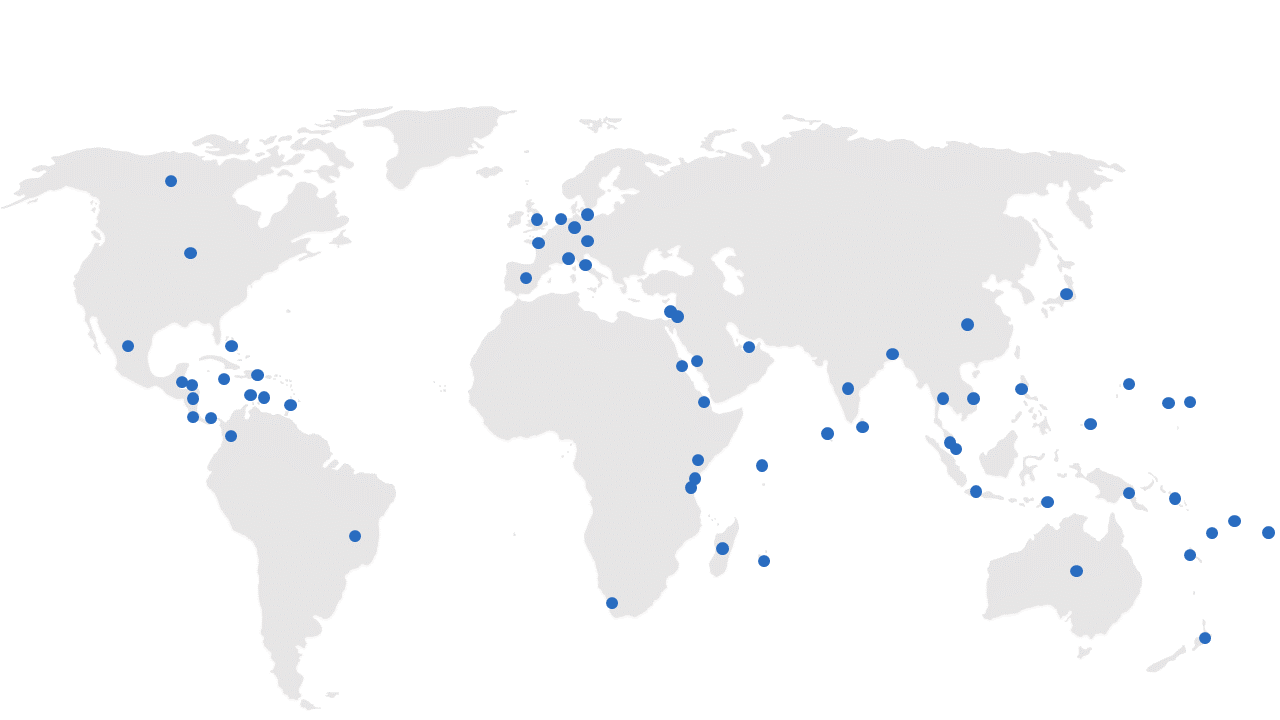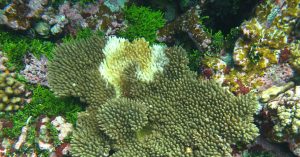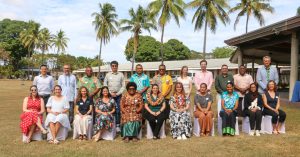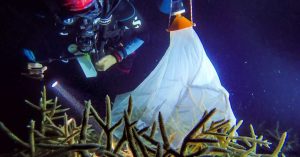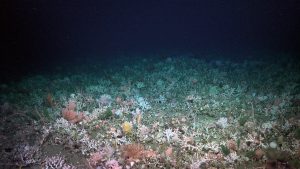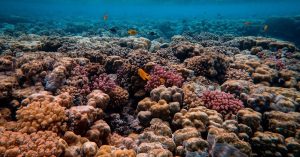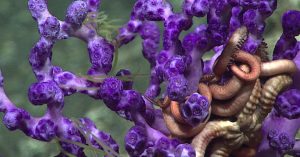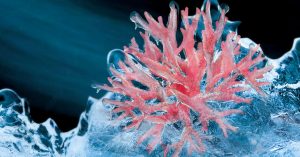Coral Accelerator Program (CAP) 2022 (Closed)
G20 CORDAP is committed to funding proposals focusing on advancing and delivering the next generation of science and technology that contribute to conservation and restoration of tropical coral reefs and cold-water corals.
Through this award program, CORDAP fosters global collaboration among top-tier experts, employing a transdisciplinary approach to stimulate the generation of ideas and concepts. In CAP 2022, research projects in the following priority areas were supported:
- High throughput coral production and deployment methods
- New methods to conserve existing corals
- Limiting mortality of early life corals
- Automation systems
- Reef monitoring
- Methods to meld natural and artificial reef recovery processes
- Developing country R&D methods
- R&D capacity building
CAP 2022 proposals were received from all over the world.
18M USD
Total Awards
28
Concept Notes were
invited to Full Proposal
39%
for novel
R&D projects
40%
going to
academia
Coral Accelerator Program (CAP) 2022 Awarded Projects List
Establishing the Global Coral Cryopreservation Network
- Lead PI: Mary Hagedorn
- Countries involved: USA, Mexico, Australia, Curacao
- Institutions: Smithsonian Institution, Multiplier and CARMABI Foundation, Taronga Conservation Society, The Florida Aquarium, Universidad Nacional Autónoma de México
- Total Budget: $1,459,922
- Duration: 24 months
- Areas of research: high-throughput rate of coral production and deployment methods
- Summary: Coral cryopreservation is a valuable tool for conservation that can help preserve coral genetic diversity, restore damaged reefs, and improve the overall health of coral populations. Preserving coral tissue samples through cryopreservation can be used to restore damaged or destroyed coral reefs. Cryopreservation provides a safe and long-term storage solution for coral tissue samples that can be used for research, conservation, and restoration efforts for years to come. This project will establish a global coral cryopreservation network, launching a decade-long effort to create permanent coral biorepositories, bank coral genetic diversity around the globe, and apply cryopreservation directly in reef restoration programs.
Super Supplement: Boosting coral resilience through nutritional subsidies
- Lead PI: Emma Camp
- Countries involved: Monaco, Malaysia, Indonesia, Australia
- Institutions: University of Technology Sydney, Centre Scientifique de Monaco, Moonsoon Aquatics, CoralKU, University of Malaya, Gili Matra Bersama Foundation/Coral Catch, Gili Shark Conservation
- Total Budget: $1,426,397
- Duration: 36 months
- Areas of research: New methods to protect existing corals
- Summary: Global decline of coral reefs may be mitigated by enhancing their natural capacities to tolerate stress. The Proposal aims at using innovative recent findings to demonstrate the utility of customized nutritional supplements for elevating the resilience of tropical and cold-water corals during restoration and periods of heat stress. The multidisciplinary team is aiming to ‘tune up’ a nutrient profile for coral species in general with focusses on a micronutrient (Mn), antioxidants and lipids to likely improve survival and growth rates of coral rearing for restoration activities.
A smart-decision framework for coral restoration (ASSIST) – harnessing resilience for restoration
- Lead PI: Affendi Yang Amri and Sebastian Szereday
- Countries involved: Malaysia, USA, Germany
- Institutions: Malaysian Society of Marine Sciences, Coralku, University Malaya, Triton Society, University of Konstanz
- Total Budget: $507,400
- Duration: 36 months
- Areas of research: R&D Capacity Building, Reef Monitoring
- Summary: This project, proposed by the implementing team outlines a structured process framework to improve the efficacy of coral restoration projects in the Asia-pacific region. The aim of the project is to develop low-cost smart-decision framework for coral restoration (ASSIST) to enable practitioners to select those colonies as source material with the highest chance of long-term success and climate change survival, to ultimately address the problem of long-term die-offs of propagated corals at the base of the problem.
Giving Caribbean corals a future: SCTLD and the use of probiotics in coral restoration projects
- Lead PI: Valeria Pizarro
- Countries involved: USA, Colombia
- Institutions: University of North Carolina Wilmington, University of Massachusetts Lowell, Blue Indigo Foundation, CORALINA (Corporation for the sustainable development of the Archipelago of San Andres, Providencia and Santa Catalina, ECOMARES foundation
- Total Budget: $1,459,388
- Duration: 36 months
- Areas of research: Limit mortality of early life corals
- Summary: The proposal aims to address the current problem of disease of SCTLD occurring in the San Andres Island. STCLD is a devastating disease that decimates Caribbean corals at a very high speed. To solve this problem the proposal offers a biotechnological approach through the application of probiotics as an alternative to antibiotics that not only costly but also give negative impacts to the environment. The probiotic treatments developed will be shared with collaborators working in other coral reef areas in the Caribbean.
CLEAN REEFS: a dynamic pollution mapping and risk assessment tool for global coral reefs
- Lead PI: Amelia Wenger
- Countries involved: Australia, USA, Fiji, Solomon Islands, Bahamas
- Institutions: University of Queensland, Wildlife Conservation Society, CoralVita
- Total Budget: $1,122,546
- Duration: 36 months
- Areas of research: New, innovative ideas for restoration and adaptation interventions
- Summary: The proposed project tackles important questions of how to identify coral reefs that are most at risk from pollution and where to prioritise management implementation in order to protect them. To that end, the proposal outlines three main objectives: 1) utilising open source, near-real time data layers of pollution indicators and hydrodynamic parameters to develop dynamic pollution dispersion models and coral reef pollution exposure maps on a global scale; 2) building a web-based application that runs global pollution models, and 3) to support partner end-users to use the pollution model outputs for conservation planning and management interventions.
ReefSeed – a portable aquaculture system for rapid and up-scaled production and deployment of corals for reef restoration
- Lead PI: Andrea Severati
- Countries involved: Australia, Maldives
- Institutions: Australian Institute of Marine Science (AIMS), Maldives Marine Research Institute (MMRI), Commonwealth Scientific and Industrial Research Organisation (CSIRO)
- Total Budget: $1,459,999
- Duration: 36 months
- Areas of research: Low infrastructure, high throughput rate coral production and deployment methods
- Summary: The sexual reproduction of corals has the highest potential for reef restoration. The targeted impact of this proposal is the development of the sexual reproduction system of corals through PORTABLE REEF SEEDING technology being developed by AIMS. ReefSeed applies a novel method that minimizes production time (weeks not months), deploys rapidly from the surface, and delivers high survival. This proposal provides training and transfer of technology to the Maldives.
Empowering community-led coral reef restoration and prioritization in the Maldives
- Lead PI: Peter Harrison
- Countries involved: Australia, Maldives
- Institutions: Southern Cross University, Maldives Coral Institute, Ministry of Fisheries, Marine Resources and Agriculture, Rathafandhoo Council, South Huvadhu atoll, Commonwealth Scientific and Industrial Research Organisation, University of Queensland, Australian Institute of Marine Science (AIMS), Queensland University of Technology
- Total Budget: $1,459,988
- Duration: 36 months
- Areas of research: Developing country R&D methods
- Summary: The proposal provides a novel coral reef restoration effort through an innovative larval restoration technique approach and how its deployment could catalyze coral recovery. The application of restoration technology to social and economic aspects is the main target in increasing local capacity in the Maldives. Project outcomes include implementing, through local stakeholders, optimized methods for larger scale larval production and coral restoration that can be transferred to many species and other reef regions globally, and establishing a national Maldives coral restoration practitioner-network to sustain the recovery of restored coral communities and continuously scale-up future coral restoration.
Novel bio-optical tools for scaling up coral restoration practices in cooperatively managed reef systems in the Pacific
- Lead PI: Kenneth Hoadley
- Countries involved: USA, Guam, Fiji
- Institutions: University of Delaware, University of Guam, Reef Explorers Fiji
- Total Budget: $1,459,021
- Duration: 36 months
- Areas of research: New, innovative ideas for restoration and adaptation interventions
- Summary: The proposal aims to field test and innovative optical method (submersible fluorometer) to characterize the thermal stress tolerance of symbiont algae inside the coral host using newly developed technology. The team will develop low-cost instrumentation measuring physiology of the algae to provide a ‘traitbased’ approach to select thermally tolerant coral colonies rapidly and nondestructively. The non-invasive measuring approach together with a user-friendly output that processes and integrates a large, sophisticated data set promises a truly helpful device for field based selection of corals bearing more stress tolerant symbionts, that will ultimately provide decision-making power to restoration practitioners.
Upscaling and optimizing coral sexual propagation technologies for coral restoration in the Caribbean
- Lead PI: Rita Sellares
- Countries involved: USA, Netherlands, Dominican Republic
- Institutions: Fundación Dominicana de Estudios Marinos, Reef Renewal Bonaire, SECORE International Inc
- Total Budget: $1,388,943
- Duration: 36 months
- Areas of research: Low infrastructure, high throughput rate coral production and deployment methods
- Summary: The project’s aim is to upscale and optimize coral sexual propagation technologies for coral restoration in the Caribbean, including optimizing coral reproduction techniques, in particularly the coral’s sexual reproduction technologies, and to upscale coral recruit production while lowering time and resource investments. As Caribbean coral reefs are facing rapid ecosystem changes due to pervasive diseases, the team expects that technologies and approaches for sexual and asexual propagation of corals will be expanded and adopted in other Caribbean countries in the next 3 to 5 years.
Quantifying and operationalizing genetic adaptation for successful coral restoration (CORALADAPT)
- Lead PI: James Guest
- Countries involved: UK, Australia, Philippines, Palau
- Institutions: Newcastle University, University of Queensland, University of the Philippines, Palau International Coral Reef Center, Palau Automated Land And Resource Information Systems
- Total Budget: $1,459,302
- Duration: 36 months
- Areas of research: New, innovative ideas for restoration and adaptation interventions
- Summary: CORALADAPT aims to estimate adaptation of coral heat tolerance for a diversity of reef environments and coral species. The project is aiming to combine prediction, identification and protection of heat resistance for coral reefs by identifying the ‘resilient coral’. The project will provide detailed guidance on how restoration can be designed to maximise adaptation potential. This Project led by a consortium of international researchers, in collaboration with managers involved in the conservation and management of coral reefs in the two target countries, the Philippines and Palau.
Interventions to improve the health, growth, and survival of larvae and settlers for sexual restoration of the Mesoamerican Reef (MAR)
- Lead PI: Rebecca Albright
- Countries involved: USA, Honduras
- Institutions: California Academy of Sciences, Roatan Marine Park
- Total Budget: $1,459,454
- Duration: 36 months
- Areas of research: Limit mortality of early life corals
- Summary: The reduced number of corals has led to lower success of sexual reproduction. Lack of sexual reproduction prevents the reef from producing new, genetically varied corals, worsening reef degradation. The team will evaluate and apply three therapies: 1) seawater buffering to facilitate initial skeletogenesis, 2) amino acid dosing during larval culturing, and 3) symbiont inoculation during larval culturing to boost young coral growth and survival, and a fourth to speed up adaptation to increasing water temperatures (one of the biggest threats to coral reefs worldwide). The Proposal will also train Mesoamerican Reef partners to use the most effective low-cost, low-tech solutions in their restoration efforts in this important region.
Accelerating coral reef conservation, restoration, and sustainable business development in developing nations through the use of ex situ coral spawning
- Lead PI: Rita Rachmawati
- Countries involved: UK, Indonesia
- Institutions: National Research and Innovation Agency, University of Derby
- Total Budget: $895,774
- Duration: 36 months
- Areas of research: R&D capacity building
- Summary: This project aims to improve production of large polyp stony corals for commercial trade (aquarium) and restoration. The project plan is to use four “lab in a box” units provided by the co-applicant; with at least one ex-situ spawning/rearing location. The project plan includes the crucial elements (1) inducing spawning, (2) augmenting survival of planulae, (3) development of cheap probiotic-enriched substrates to support larval settlement, and (4) involvement with local communities.
Developing transgenic corals as novel technology for reef restoration
- Lead PI: Nicole Fogarty
- Countries involved: USA, Philippines
- Institutions: University of North Carolina Wilmington, University of the Philippines
- Total Budget: $1,458,095
- Duration: 36 months
- Areas of research: Limit mortality of early life corals
- Summary: The project aims at developing transgenic corals as a novel technology for reef restoration. The objective of this project is to develop an efficient tool to insert transgenes into specific sites (HSP70 gene) of the coral genome so that the inserted genes are controlled by environmental stresses. The final goal is to increase resilience of corals by modifying the expression profile of stress protective genes in the corals. The project will use methods and technology such as CRISPR/CAS9 and this technology has the potential to revolutionize the field of precision coral genomics. The team also state that they do not plan to release the transgenic corals in the environment immediately.
Restoration Road Maps: Improving coral restoration and capacity of managers in the Caribbean MPAConnect Network
- Lead PI: Patricia Kramer
- Countries involved: USA, Australia, Honduras, Dominica, Mexico
- Institutions: Ocean Research and Education Foundation/ AGRRA, MPAConnect/Gulf and Caribbean Fisheries Institute, Roatan Marine Park, Dominica Local area management authority and Resilient Dominica, National Autonomous University of Mexico, Turks & Caicos Reef Fund, Institute for Socio-Ecological Research, University of Miami, University of Tennessee
- Total Budget: $970,200
- Duration: 36 months
- Areas of research: R&D capacity building
- Summary: In response to the recent Stony Coral tissue loss disease (SCTLD) outbreak this proposal addresses two key problems: 1) how to approach the dramatic and devasting losses of corals from SCTLD, especially the highly susceptible species that are at risk of genetic loss and functional extinction, and not normally included in current restoration activities, and 2) how to build local-level restoration capacity of MPA managers at a regional scale meaningful for recovery of high-risk Caribbean corals. The proposal aims to bring together and train reef managers throughout the Caribbean to build local coral-restoration capacity.
Apply Now to CAP 2023
News & Events
New roadmap on coral diseases’ research fills the gaps and needs in the field
CORDAP released a complete roadmap that reviews the current state of knowledge about coral diseases, identifies critical gaps, and suggests paths to move forward in the combat against these diseases.
CORDAP publishes roadmap on enhancing capacity development in coral reef conservation and restoration in the Global South
CORDAP released a detailed roadmap focused on building regional capacity and supporting community-driven innovation in the Global South.
CORDAP scoping study: how land-based pollution and water quality affect corals
Coral conservation experts gathered at a CORDAP workshop in Fiji to discuss the actions needed to address land-based pollution and water quality issues in a way that contributes to efficient coral restoration.
The unexpected solutions to save coral reefs worldwide
CORDAP awards $1.5 million to 16 breakthrough solutions to save coral reefs through restoration projects.
Global coral research funding reopens — up to USD 1.5 million per project
PRESS RELEASE - September 1, 2025 CORDAP announces new funding call and celebrates 2024 awardees The G20 Coral Research and Development Accelerator Platform (CORDAP) has launched its fourth annual Coral Accelerator Program (CAP) funding call, offering up to...
Urgent Call to Action adopted during the UN Ocean Conference
This call to action was issued by the International Scientific Committee of the One Ocean Science Congress, which is composed of 16 renowned scientists, including Carlos Duarte — CORDAP Executive Director and a prominent ocean voice and leader.
CORDAP is the recipient of the 2025 Mirpuri Foundation Ocean Award
CORDAP was selected as the recipient of the 2025 Mirpuri Foundation Ocean Award. The award, which includes a €10,000 prize, honours excellence in marine conservation, scientific innovation, and circular economy principles.
CORDAP and The Earthshot Prize launch global search for coral Innovators
New strategic partnership announced aboard OceanXplorer during UN Ocean Conference with ocean advocates James Blunt and Philippe Cousteau Jr.
DJ Steve Aoki ‘s racing team is joining scientists to save corals
CORDAP and Aoki Racing join forces to raise coral awareness around the world.
Your contribution can fast-track research and development solutions to save the corals.
Image: Qui Nguyen

